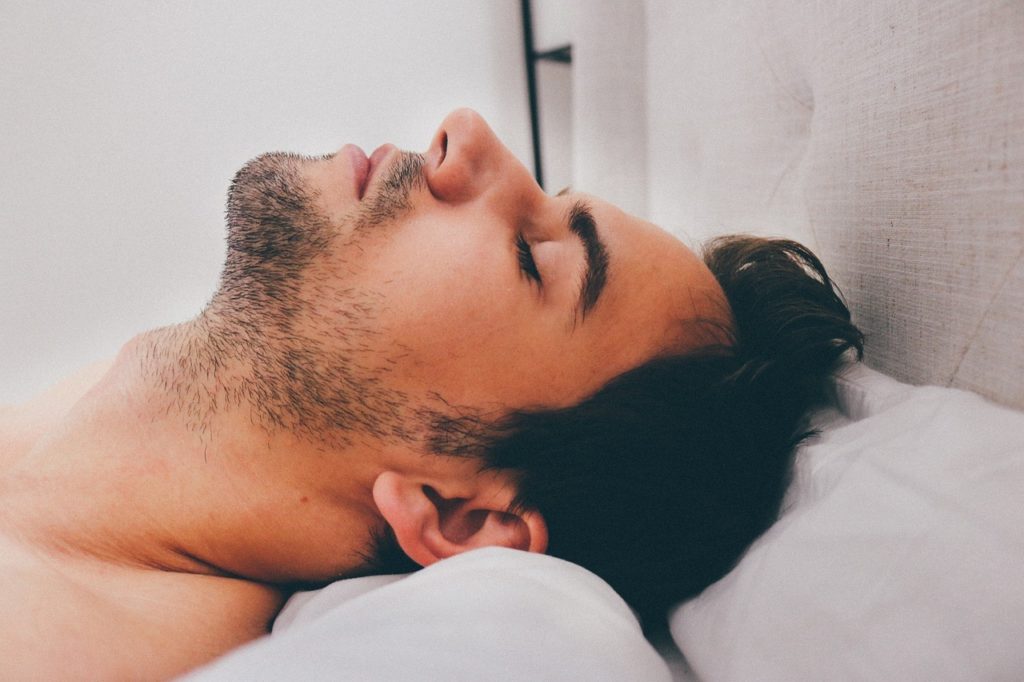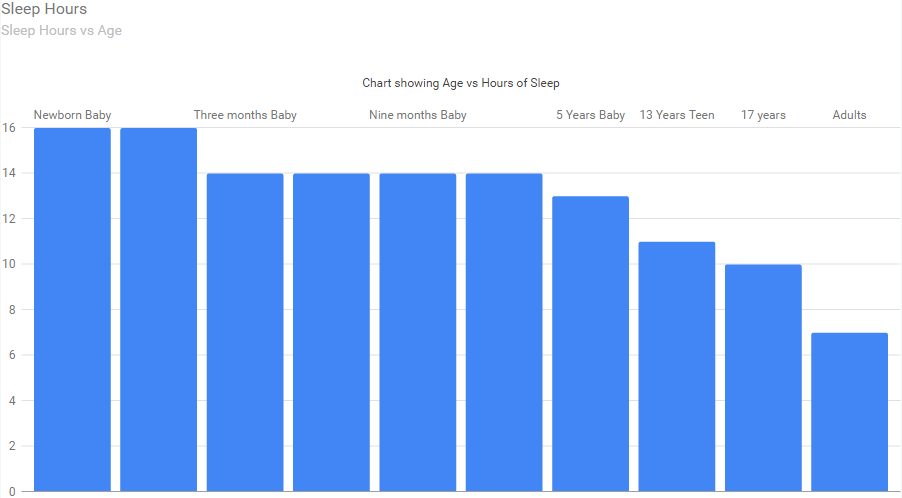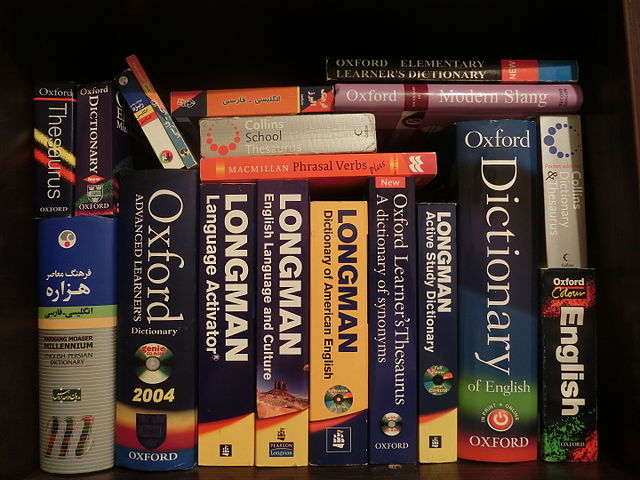“The woods are lovely, dark, and deep. But I have promises to keep and miles to go before I sleep,” says one of the paragraphs in a poem by the famous poet Robert Frost It depicts the mental state of someone who is eager for some rest but driven by ambition and believes he still has a long way to go before he can relax.
Even though such resolve is admirable, it is not advisable. Doctors routinely advise people to sleep between 6 and 8 hours every day and claim that people sleeping less than 6 hours are doing themselves a disservice and are under the illusion that they achieve more by sleeping less.
They even claim that going 18 hours without sleep puts your body in a “wakeful drunken state.”. How much a person should sleep has been the subject of quite some debate. While some people can manage for a minimum amount of time, others need to sleep for longer periods of time to perform at their best.
For example, India’s Prime Minister, Narendra Modi, sleeps only for about 4 hours daily and has been doing so for quite a while, while the famous singer Mariah Carey says, “I have got to sleep for 15 hours to sing the way I want to.”.
This is about double the recommended time and about 4 times what Modi sleeps. However, Elon Musk (who is arguably the most productive man in the world) sleeps for about 6 hours a day, while Bill Gates (you know who that is) recommends 7 hours of sleep every day.
It is quite clear that the length of sleep time differs from person to person, but what does not differ is the need for good sleep.
Sleep is a necessity, not a luxury. Sleeping less does not allow the body to recuperate from the previous day and hence might make the upcoming day unproductive, so the whole point of sleeping less becomes pointless.
It is a very noticeable observation that when a person is short on sleep, he/she has a higher than normal craving for sugary food. This is because the body is in an immediate need for a boost of energy and nothing provides this better than sugar.
Thus, even though it might sound counterintuitive, sleep deprivation is directly linked to overeating and weight gain. There are two hormones, namely ghrelin and leptin, that signal to the brain that you are hungry or full, respectively.
On sleeping less, the Ghrelin levels go up hence increasing the need for more food. There are numerous more explicit harmful effects as well.
Fatigue and lethargy are the foremost among them. Irritability, inability to cope with stress, reduced creativity and problem-solving skills, and concentration problems are quite observable when the body is not rested properly.
Prolonged exposure to a lack of sleep also reduces the body’s immunity making people more prone to infectious diseases like cough and cold.
How much time one spends sleeping is a less important issue than the importance of sound sleep. As mentioned earlier, Narendra Modi and many others sleep for 4 hours a day, but in his own words, “Doctors tell me I need to sleep for 5 hours, but I sleep for a maximum of 3–4 hours, yet I get a very sound sleep.”
As Mr. Modi points out, getting deep sleep is more important. Deep sleep is the time when the body recuperates and builds up energy for the next day.
This has a major impact on health, the immune system and stimulating growth and development. It is not just the amount of time spent on the bed sleeping.
The quality and efficiency of that rest period need to be high as well, so that you wake up completely refreshed the next morning. Adhering to the following points should make this process easier and more productive:
Having a consistent sleep-wake schedule significantly increases the duration of deep sleep. This schedule should even be followed on weekends as much as possible. The human body is slow to adapt but it does eventually adapt and it does that well. Once the body gets accustomed to a fixed time for sleep, it should not be meddled with too much.
Snacks before bedtime should be light. Additionally, if a person smokes or drinks, it is best to limit them before bed. The body’s metabolism needs to be low while going to bed to give you the most refreshing sleep.
If you have trouble sleeping at night, avoid sleeping at other times of the day. And if you fail even then, it means your body isn’t getting the amount of exercise required to make it feel tired by the end of the day. Exercising for half an hour or so should do the trick in such situations. The body has to be tired in order to rest. Also, in cases of insomnia, sleeping pills and other prescription drugs should be avoided as much as possible. Sleeping is a very natural thing and will come back to you sooner or later. Have patience.
Make sure the bedroom is dark, cool, and quiet. Listening to music and falling asleep while the music is playing might lead you to believe that you are getting a good night’s sleep, but that is not the case. The brain is still working even when you are asleep and its functions need to be minimised during sleep time so that it gets the maximum amount of rest. This won’t happen if the music continues to play in your headphones when you are asleep. Even though you might not realise it, the brain is processing the sound. And likewise, a dark room ensures that there is no light to disturb your brain’s rest time, and a cool room makes sure you have a comfortable time. Remember that minimising the number of tasks that your brain performs during sleeping is the key to good sleep.
Sir Isaac Newton slept for 2 hours a day. Thomas Alva Edison didn’t even sleep because he felt it was a waste of time and took power naps instead.
However, such sleeping schedules are not recommended for mere mortals, and these people certainly were exceptions, as their work shows. Since they slept so little, it is not possible to categorize them as early risers or late-night workers.
Nevertheless, the phrase “early bird catches the worm” could not have been far from true for humans, though it might be true for worm-catching birds.
Too many people believe that starting early is what they have to do to become more productive. Elon Musk (again) proves such early riser propagators wrong.
He is known to be a night guy and regularly goes to bed only by about 1 A.M. in the night. This, however, does not mean that everyone should follow his lead and forcefully keep oneself awake till 1 A.M.
One size never fits all and a person needs to determine for himself/herself if they are a morning or a late night person. There are some other myths related to sleep too:
8 hours of sleep is an absolute necessity Nothing could be further away from the truth. Everyone needs different amounts of sleep depending on their age, gender and the amount of work they do. In fact, it might vary even from day to day! So while some days sleeping less than 8 hours might do, other days you might want to sleep more. “You know you are getting enough sleep when you don’t feel like nodding off in a boring situation in the afternoon,” says New York psychologist Joyce Walsleben.
Sleeping more than the required amount of time does no harm. How the sleep lovers wish it to be true! But it isn’t. There have been studies which demonstrate that people who slept more than 8 hours a day died younger than people who slept between 6-8 hours. However they are yet to ascertain if sleeping more is the cause or is an effect of some other malady. Similar to under-sleeping, oversleeping negatively affects our circadian rhythm (biological clock in simpler terms) as well. People who habitually sleep more maybe suffering from hypersomnia – i.e. when oversleeping turn into a medical problem (the inverse of insomnia). There are a lot of side effects in such a case too like anxiety, irritability, a lack of motivation and energy, appetite and memory loss. These are obviously in chronic cases and you should not become too worried if you have just spent half the day sleeping. However, go out and do something productive instead of sleeping through the day.
Sleeping more in the weekends can make up for the lost sleep during the week. Fasting for a day does not mean you eat double the amount of your usual diet the next day, doesn’t it? So is the case with sleep contrary to what most people would like to believe. In fact binge sleeping on weekends upsets the circadian rhythms and makes it even harder to get restful sleeps. Our body likes consistency.
Even though our body likes consistency, we might not always be able to do justice to the need.
Sometimes our requirements force us to change our sleeping schedules. Long international flights are the best example related to the disruption of the circadian rhythm.
Also, some people might need to work in shifts and might need to adjust to the routine in a very short time. There are a few things that can be done in such cases to ease the transition process:
Try to bring about the change as gradually as possible. For example if you normally wake up at 8 A.M. and want to get up at 5 A.M. wake up half an hour early for each successive day until you reach the time you wish to wake up.
However, people might not have time for such gradual changes. In such cases fast for 12 hours before your desired waking time. Harvard researchers have found out that when you eat affects your biological clock. Also, avoid consuming stimulants like coffee, cigarettes or alcohol at least 5 hours before your planned time to go to bed.
Even though it might sound counterintuitive, avoid heavy exercise one or two hours before you plan to sleep. People believe that this should make them tired enough so that they will fall right asleep after being tired from the exercise. However, heavy exercise has the potential to disrupt your circadian rhythm. Light stretching and light exercises like walking may prove beneficial here.
As has been mentioned previously, one should always aim for the amount of sleep that allows them to be fresh throughout the day.
People might make up for the lack of sleep by consuming a lot of caffeine but prolonged abstinence from sleeping is detrimental to health.
There are numerous cases of people falling over unconscious due to exhaustion even though they “felt perfectly fine”. The body is a temple and the temple needs repair work after the ordeals of the day. Sleep matters a lot.
Due to our increased understanding of sleep, we can now make more informed decisions. Organization leaders can give a boost to their organizations’ productivity by controlling people’s work schedules, thereby improving their general mood and health.
That being said, sleeping is not something one should always be worried about. You might get motivated by seeing examples of successful people who sleep less and start believing that this is the only way to success, but there are an equal number (or probably more) of successful people who do not compromise on their sleep and even preach the good effects of deep, sound sleep.
If you can go through the day full of energy and verve and fall asleep like a baby as soon as you hit the bed, then you are doing exactly the right thing. But if you aren’t, there are a few changes in your lifestyle you should be considering.
A Sleep Schedule for Adults
Adults should create a sleeping schedule that is consistent, allows for seven to nine hours of sleep per night, and is in line with their body’s natural circadian rhythm. This sleeping schedule example may be useful to you:
An adult’s typical sleep schedule:
- Establish a time for both bedtime and wake-up.
- Time for bed: 10:00 P.M.
- Time of Wake-Up: 6:00 AM
- Evening Schedule (9:00 PM onwards):
- Switch off every electronic gadget to minimize your exposure to blue light.
- Take up a soothing hobby or practice, like reading a book or practicing meditation.
- Make sure your bedroom is sleep-friendly by adjusting the temperature and dimming the lights, for example.
- Morning Schedule:
- Refrain from using the snooze button in order to keep your wake-up time regular.
- To help you maintain a healthy circadian rhythm, expose yourself to natural light.
- Do some light exercise, such as stretching or taking a quick stroll.
Keep in mind that consistency is essential. Try to stick to these times every day, including weekends, to train your brain to naturally feel tired at bedtime and wake up refreshed. You can modify these according to your own schedule and way of life, but the overall ideas should hold true.






